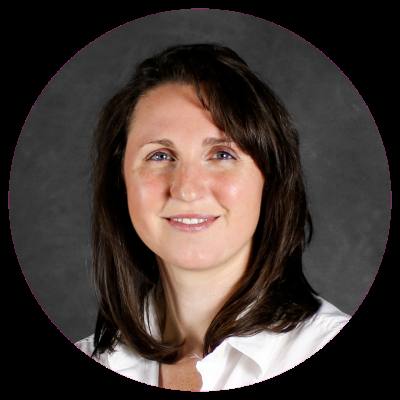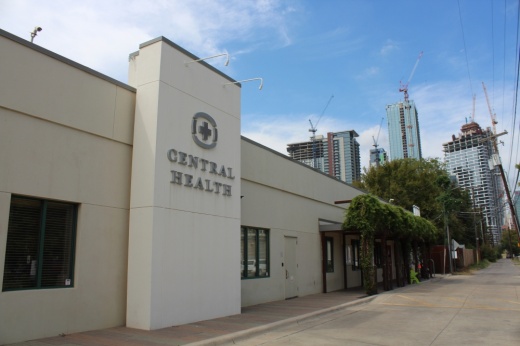What you need to know
Beginning Oct. 1, residents will see a 6.5% increase in their Central Health property tax rate.
For the average Travis County homeowner, the new tax rate of $0.107969 per $100 valuation will result in an estimated annual tax increase of $66. Homeowners can expect to pay around $544 in property taxes to Central Health.
The details
In recent years, the district launched its seven-year Healthcare Equity Plan—a nearly $700 million initiative to invest in more direct care methods and clinics.
With the approved new tax rate, this year’s budget saw a $58.2 million increase in funding, totaling $353.5 million, outlined for these direct health care services for FY 2024-25.
Central Health highlighted several ways the money would support clinical services:
- A $30.8 million budget increase will be used to expand specialty services, providing 30,000 annual specialty care visits at the Rosewood-Zaragosa, Capital Plaza and East Austin clinics.
- Another $5.1 million budget increase will support mental health services, including increased funding for Integral Care—the county's mental health care provider—totaling $20 million for increased outpatient care and emergency services, as well as expanding in-house care, such as psychiatry and therapy.
- A $3.6 million investment will enhance care coordination and enrollment by adding 21 new employees, while $2.6 million has been also allocated to increasing eligibility and enrollment services by providing more on-site and virtual support.
- Central Health will utilize $6.1 million to expand post-hospital care bed space by setting up new contracts with nursing facilities to provide 1,440 bed days directly operated by Central Health and 3,000 contracted bed days
Other projects and initiatives planned for the upcoming fiscal year include:
- Ongoing collaboration with Travis County to expand inmate health services, diversion programs and Medical Access Program enrollment
- The opening of the Del Valle Health and Wellness Center in December 2024
- Starting construction of the Cameron Centre and Colony Park facilities
- Continued construction at the Hancock Center, with a phased opening scheduled to begin in 2026
An estimated $395.7 million will remain in Central Health’s reserve fund.
The backstory
Although the hospital district’s budget was approved unanimously, commissioners impressed upon Central Health leadership the need for greater transparency, again calling out the annual $35 million financial arrangement with Dell Medical School at The University of Texas as well as a recent clash with its clinical partner CommUnityCare.
Precinct 2 Commissioner Brigid Shea said the county has “repeatedly” voiced concerns regarding annual taxpayer dollars given from Central Health to Dell Medical School.
A recent third-party audit of the organization also called for greater reporting and documentation to be conducted and shared by both Central Health and Dell Med.
Since 2014, Dell Med has received $35 million of taxpayer dollars annually paid by Central Health with the intent to support increased capacity for greater care of the area’s poorest residents.
The money was used initially to fund the creation of the Dell Medical School and has subsequently been used to largely pay staff salaries.
The audit indicated the organization has conducted business with no violations to the law.
However, the report also revealed that due to a lack of consistency in reporting and communication by each agency, auditors were unable to link the salaries paid to a direct number of outcomes or number of patients served.
Coupled with her concerns over transparency, Shea also voiced her unease with the school classifying the money received from Central Health as a “gift,” which is an illegal use of taxpayer dollars.
Precinct 1 Commissioner Jeffery Travillion joined in Shea’s apprehension.
“Most people, if you cut a $35 million check and they don't tell you anything that they did with it, they usually put people like that in jail,” Travillion said. “So at the end of the day, we want to make sure that things have been done well and right. ... I don't think that's too much to ask.”
Judge Andy Brown questioned Lee over his recent decision to place Jason Fournier, the CEO of CommUnityCare, on administrative leave due to allegations yet to be announced to commissioners, the public and even Fournier himself.
CommUnityCare serves as a key provider of clinical services for the hospital district.
Lee’s exertion of Central Health authority over the organization has caused friction between the two agencies, with various CommUnityCare board members having voiced their displeasure to commissioners during public comment in recent weeks.
Precinct 4 Commissioner Ann Howard noted that it seemed to be taking a while to resolve the issue.
“[Central Health] said that they’re working through the HR process as fast as possible, but I think it's been about three weeks. And you know, that just doesn't seem right to me that someone, if it's true, doesn't know why for three weeks,” Howard said. “Can you give us any assurances that your staff can produce what y'all need to make decisions like this week or next? How long is this going to go on?”
Lee told commissioners that he was following the agency’s protocol and that an investigation is underway.
“The complexity of this HR process is high, so we have both engaged independent investigators,” Lee told commissioners.
Lee explained that the allegations were of a “critical nature” and that investigators were currently waiting on key documents that had been requested roughly two weeks prior.
Before approving the budget, commissioners passed a motion directing staff to investigate legal options related to the school's use of funds and to seek legal counsel to resolve the dispute between Central Health and CommUnityCare.
What we know
Lee previously informed commissioners that Central Health has increased enrollment in its Medical Access Program, which provides care for the county’s low-income and uninsured population, by 36% over the last four years.
To date, there are over 85,000 individuals enrolled in Central Health’s Medical Access Program.
Support for improved health within the county dates back to 2012, when voters approved a tax rate increase that included plans for a new medical school.
Lee said the medical school has also contributed to the metro’s overall health care ecosystem.
Last year, UT Health Austin—the clinical practice of Dell Med—served over 12,000 unique patients, with 38% of patients using the Medical Access Program, Medicaid or Medicare.
According to a statement from Dell Med, in the first decade of operations, the medical school has:
- Trained nearly 600 residents and fellows in medical specialties, like cardiology and neurology
- Graduated over 230 medical students
- Attracted over $100 million in health research funding
- Recruited nearly 450 faculty physicians to Austin
- Provided over 1 million hours of care





